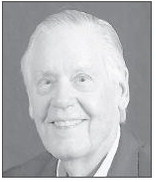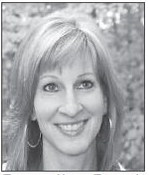continued from page his entire ….
continued from page
his entire life.”
Farms and Faith
Though farming has been a cornerstone of Plains’ economy for generations, tourism became a significant industry shortly after Carter entered the political arena.
“People come here from all over the world,” says Carter’s niece, Kim Fuller of Plains. “They loved President and Mrs. Carter, and they come here to learn more about their lives and honor them.”
The town is proudly home to four national historic sites managed by the National Park Service (NPS): Carter’s boyhood farm, the old Plains High School, the depot that once doubled as his campaign headquarters, along with the existing family residence (currently closed to the public).
These visitors wander around the Rosalynn Carter Butterfly Trail, take one of the self-guided tours around Plains, shop in stores filled with Carter collectibles, browse the memorabilia in the Billy Carter (Jimmy Carter’s brother) Museum, eat at a little cafe and ride the SAM Shortline Railroad. Attendance is expected to surge now that Carter has passed away, due to his decision to be buried alongside his beloved Rosalynn near their Plains home.
In the decades before 2020, many made the pilgrimage to attend Maranatha Baptist Church, where Carter, a devout Christian, was a deacon and taught Sunday school.
“The church was packed back then — a full house every Sunday,” Fuller says. “[My uncle] could give a deep perspective on his lessons, and people were just in awe of him.”
Citing scripture and drawing strength from prayer throughout his life, Carter encouraged tens of thousands of Maranatha guests to study the Bible, pursue spiritual journeys and grow closer to God.
“And afterward, he’d pose for a photo with them,” Fuller adds. “He’s always lived his faith and has never minded sharing his faith with others. His faith is who he is.” Hammers and Homes
A few years after the Carters returned to their hometown from Washington, D.C., Habitat for Humanity co-founder, Millard Fuller of Americus sent the couple a letter suggesting 15 ways they could help elevate the organization — from giving money to volunteering to work on job sites to making public appearances. Believing in the mission of building safe, affordable housing for lowincome families, the Carters eventually did all 15 items on the list. In the fall of 1984, they took part in the first Jimmy and Rosalynn Carter Work Project.
Since that week, the Jimmy and Rosalynn Work Project has deployed 108,100 volunteers to 14 countries to build 4,447 affordable homes for deserving partner families.
As Habitat grew with affiliates emerging throughout Georgia and beyond and home-building projects spanning the globe, the organization considered moving the headquarters from Georgia. Carter was instrumental in keeping Habitat in Georgia.
“Through their engagement and leadership, the Carters have helped make it possible for so many families in Georgia and around the world to have affordable housing,” Habitat’s CEO Jonathan Reckford says. “Helping Habitat was a way he could put his faith into action. In fact, he’s said that he gained more from the experience of volunteering than the homeowners did.”
The Carter Center
In 1982, President and Rosalynn Carter founded The Carter Center, a nonpartisan, nonprofit based in Atlanta.
“He imagined a place here in Georgia, like Camp David, where people could come together—work together— to address needs existing in the world,” says Paige Alexander, CEO of the Carter Center.
The Center’s achievements are vast, including protecting and advancing human rights; establishing and strengthening democracies; and furthering avenues to peace. Carter was awarded the 2002 Nobel Peace Prize for his work in these areas.
On the health front, the center led a coalition that has reduced Guinea worm disease by 99.99%, making it likely to be the first human disease since smallpox to be eradicated.
The center’s work to distribute Mectizan helped to eliminate river blindness in Colombia, Ecuador, Mexico and Guatemala.
“He always said that, ‘Big things are possible when we work together,’ and he was right,” she says.
According to Alexander, the Carters worked at the center a week out of every month — talking to the staff, holding hands as they walked down the hall, turning off lights in empty rooms and adjusting thermostats — until just before the pandemic.
“People of Georgia admired his strong moral compass and leadership,” she says. “He was a homegrown son who went to the ends of the road on every continent to create better, more fulfilling lives for people — many who’ve been overlooked.
“His legacy in Georgia? His legacy is that he was one of us!”





NITTY GRITTY
Posted on